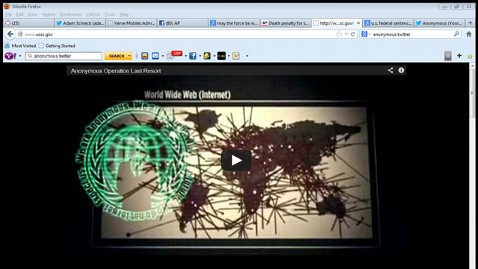JERUSALEM Israel could launch a pre-emptive strike to stop Syria's chemical weapons from reaching Lebanon's Hezbollah or al Qaeda inspired groups, officials said Sunday.
The warning came as the military moved a rocket defense system to a main northern city, and Israel's premier warned of dangers from both Syria and Iran.

Panetta: No new signs Syria prepping WMD

U.S. military deploys Patriot missiles along Turkey-Syria border
Israel has long expressed concerns that Syrian President Bashar Assad, clinging to power during a 22-month civil war, could lose control over his chemical weapons.
Vice Prime Minister Silvan Shalom said Sunday that Israel's top security officials held a special meeting last week to discuss Syria's chemical weapons arsenal. The fact of the meeting, held the morning after a national election, had not been made public before.
Shalom told the Army Radio station that the transfer of weapons to violent groups, particularly the Iranian-backed Lebanese Hezbollah, would be a game changer.
"It would be crossing a line that would demand a different approach, including even action," he said. Asked whether this might mean a pre-emptive attack, he said: "We will have to make the decisions."
Israel has kept out of the civil war that has engulfed Syria and killed more than 60,000 people, but it is concerned that violence could spill over from its northern border into Israel.
Israel deployed its Iron Dome rocket defense system in the northern city of Haifa on Sunday. The city was battered by Hezbollah rocket fire during a war in the summer of 2006. The military called the deployment "routine."
Iron Dome, an Israel-developed system that shoots down incoming short-range rockets, was used to defend Israeli cities during a round of hostilities with Hamas militants in the Gaza Strip, on Israel's southern flank, last November.
Yisrael Hasson, a lawmaker and former deputy head of Israel's Shin Bet intelligence agency, said Israel was closely following developments in Syria to make sure chemical weapons don't "fall into the wrong hands."
"Syria has a massive amount of chemical weapons, and if they fall into hands even more extreme than Syria like Hezbollah or global jihad groups it would completely transform the map of threats," Hasson told Army Radio.
"Global jihad" is the term Israel uses for forces influenced by al Qaeda. Syria's rebels include al Qaeda-allied groups.
Syria has rarely acknowledged possessing chemical weapons.
Prime Minister Benjamin Netanyahu referred to threats from Syria and Iran at a Cabinet meeting Sunday. Iran is Syria's main regional ally.
"We must look around us, at what is happening in Iran and its proxies and at what is happening in other areas, with the deadly weapons in Syria, which is increasingly coming apart," he said.
Israel views Iran as an existential threat because of its nuclear and missile programs and support for violent anti-Israeli groups in Lebanon and Gaza, as well as repeated references by Iranian leaders to Israel's destruction. Iran denies it is seeking to build atomic weapons, insisting its nuclear program is for civilian purposes.
On Friday, Israeli Channel 2 TV broadcast an interview with a former Iranian diplomat who defected to the West in 2010. He warned that if Tehran gets nuclear weapons, it would use them against Israel. He did not provide evidence.
Part of Mohammad Reza Heydari's job was to draft foreign scientists to work on Tehran's nuclear program and he brought many from North Korea into Iran, the report said.
Heydari spoke from Oslo, where he has received political asylum.












